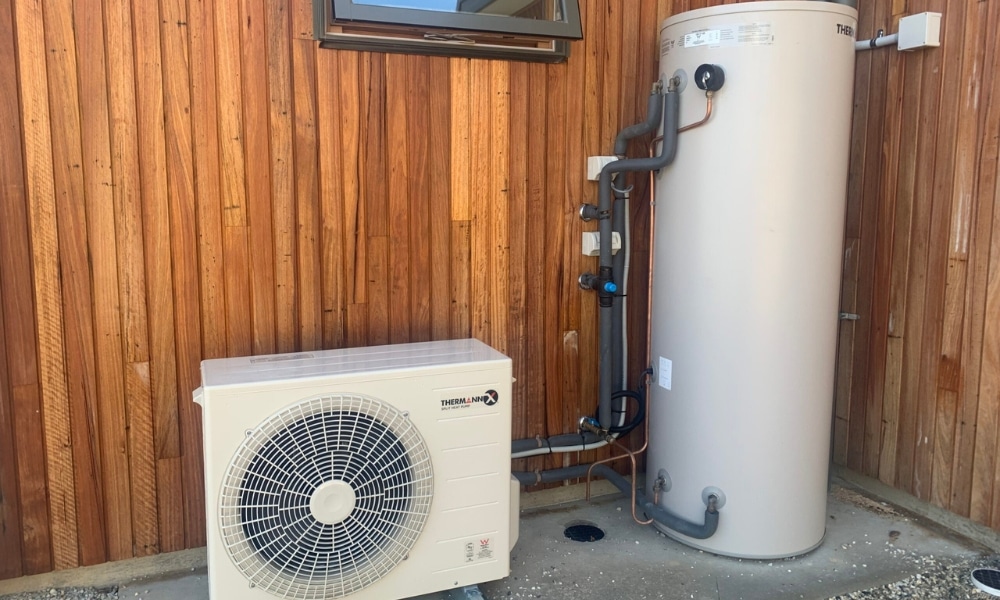
In today’s world, sustainability is at the forefront of modern living, with homeowners seeking energy-efficient, eco-friendly solutions for everyday needs. One area where this transition is particularly noticeable is home heating systems. The air to water heat pump has emerged as a cutting-edge solution for heating homes and water in an efficient and environmentally responsible manner. Companies like ALSAVO are leading the way in this domain, offering advanced heat pump technology designed for residential use.
What is an Air to Water Heat Pump?
An air to water heat pump is a device that extracts heat from the outside air and transfers it to water, which is then used to heat your home or supply hot water. Even when outdoor temperatures are low, the heat pump can capture heat energy from the air and use it to warm up water. This water is circulated through a home’s central heating system—whether underfloor heating, radiators, or even domestic hot water supply.
Unlike traditional heating systems that burn fuel to generate heat, an air to water heat pump transfers existing heat from one place to another. This process requires less electricity and is far more energy-efficient, making it a highly sustainable option.
How Do Air to Water Heat Pumps Work?
The system works on a simple thermodynamic principle. It uses a refrigerant to absorb heat from the air outside and then compresses the refrigerant, increasing its temperature. This heat is transferred to water stored in a cylinder, ready to be distributed to your home’s heating system or taps.
The major advantage of this technology is its high coefficient of performance (COP). For example, a COP of 4 means that for every unit of electricity the pump uses, it can generate four units of heat. This makes air to water heat pumps several times more efficient than conventional heating systems, such as gas or oil boilers.
Key Benefits of Air to Water Heat Pumps
1. Energy Efficiency
One of the most compelling reasons to invest in an air to water heat pump is its energy efficiency. These systems can produce far more heat than the electricity they consume, making them much more economical than traditional electric or gas boilers. Over time, this energy efficiency leads to lower electricity bills and significant savings.
2. Reduced Carbon Emissions
Because air to water heat pumps primarily use renewable energy from the outside air, they result in much lower greenhouse gas emissions than fossil fuel-based heating systems. By choosing this type of heat pump, you contribute to the global effort to reduce carbon emissions and combat climate change.
3. Cost Savings
Although the initial investment in an air to water heat pump may be higher than other heating systems, the long-term savings on energy bills are substantial. Over the lifespan of the heat pump, homeowners can expect to recoup their initial costs and save even more on their monthly utility bills.
4. Versatility
Air to water heat pumps are highly versatile and can be used in a range of residential settings. They work effectively in various climates and can be combined with different home heating systems. Not only do they provide heating in the winter, but many models can reverse the process to provide cooling in the summer, making them a year-round solution.
5. Low Maintenance
Air to water heat pumps are designed to be robust and require very little maintenance. Regular servicing is enough to keep the system running efficiently, and many modern units come with smart controls, allowing homeowners to monitor and adjust the system remotely.
Why Opt for a Monoblock Air to Water Heat Pump?
Among the different types of air to water heat pumps, the monoblock air to water heat pump stands out for residential installations due to its compact, all-in-one design. A monoblock unit contains all the necessary components—compressor, heat exchanger, and refrigerant—within a single outdoor unit. This makes it a much simpler system to install and maintain compared to split systems, which require both an indoor and outdoor unit.
Here are some specific advantages of choosing a monoblock air to water heat pump:
- Space-Saving Design: Since all the components are housed in one unit, it requires less space and is easier to fit into smaller properties, making it ideal for homes with limited outdoor or indoor space.
- Ease of Installation: The self-contained nature of a monoblock system reduces the complexity and cost of installation. Unlike split systems that require the connection of pipes and wiring between two separate units, a monoblock can be installed in a single location outdoors, speeding up the installation process.
- Low Noise Levels: Advanced models from leading manufacturers like ALSAVO offer ultra-quiet operation, making monoblock systems suitable even for densely populated residential areas.
- High Performance: Despite their compact size, monoblock air to water heat pumps deliver excellent performance. They can efficiently heat large homes and provide a consistent supply of hot water, even in colder climates.
How a Residential Air to Water Heat Pump Transforms Your Home
A residential air to water heat pump is not just a heating system; it’s an investment in your home’s energy future. It significantly improves energy efficiency while lowering the overall cost of heating your home. Additionally, it offers homeowners a chance to transition away from dependence on fossil fuels, aligning with global efforts to promote renewable energy use.
For new builds, integrating an air to water heat pump ensures compliance with energy efficiency standards and enhances the overall value of the property. For existing homes, retrofitting an air to water heat pump can help reduce energy consumption and operating costs, while also lowering the home’s environmental impact.
Conclusion
Air to water heat pumps are reshaping the way we think about home heating, offering a sustainable, cost-effective, and efficient alternative to traditional systems. With their ability to tap into renewable energy sources and reduce reliance on fossil fuels, they are an excellent option for any homeowner looking to improve their home’s energy efficiency while reducing their carbon footprint. By choosing a system like the ones offered by ALSAVO, which includes the residential air to water heat pump, you can enjoy a greener, more sustainable home that meets modern comfort and energy standards.
For homeowners looking to make an impactful change, air to water heat pumps represent a significant step toward a more energy-efficient and eco-friendly future.




